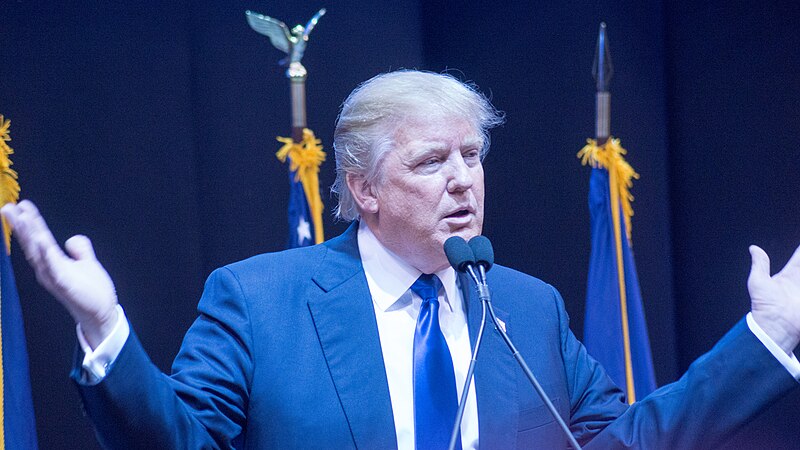
Tea Party protest
Every four years, the American airwaves are saturated with pundits claiming that the upcoming Presidential election is the most important in the nation’s history. Partisans — official and unofficial — paint dire pictures of apocalyptic disaster should the wrong candidate be voted in. Ever-escalating stakes seem an indelible feature of the American electoral game.
This framing has always struck me as somewhat silly, especially since everyone knows that Republicans and Democrats are one and the same. Yes, there is the “polarization” people have long complained of, but this seemed more a matter of tone and symbolism and rhetoric than of substantive disagreement. A bipartisan consensus came about decades ago that favoured neoliberalism and military misadventure, resulting in a much narrower scope of policy debate in the United States than in almost any other democracy.
Or at least, that’s how I used to feel.
Yesterday, I filled out a questionnaire set up on the Wall Street Journal website by Vote Compass, the Canadian organization that tries to situate participants on the political map next to the candidates and parties they have the most in common with. I have filled out Vote Compass surveys many times before in the context of Canadian federal and provincial elections, but I was surprised to find that when dealing with American issues, my answers were much more extreme than usual. In this latest questionnaire, I was more likely to “strongly” agree or disagree with a statement than to “somewhat” agree or disagree.
Something new has happened in recent years. America’s infamous Tweedledum/Tweedledee political system, as Ralph Nader described it, has suddenly become interesting.
I believe that this change, which has come to define Barack Obama’s entire first term as President, originated in the 2008 financial crisis. Now, for the first time in as long as I can remember, there is a battle of ideas being waged in the United States — specifically, over the role of government in the economy. In a country so often dismissed as having become an anti-intellectual wasteland, the ideas of thinkers such as John Maynard Keynes and Ayn Rand have forced their way into mainstream discussion. Grassroots(ish) movements like the Tea Party and Occupy Wall Street popped up and shifted the national debate. Politicians and regular people alike are having something that looks eerily similar to a grown-up conversation about taxes, regulation, and government programs. Obama, while hardly a leftist dreamboat, has to some extent picked a side in this fight by implementing a stimulus package and calling for a slightly higher tax rate on the rich in the face of ridiculous class warfare accusations from his rivals.
But for all the excitement of substantive, intellectually stimulating debate, there are undoubtedly risks too. While Obama is the first sitting President in decades to embrace quasi-Keynesian policies, the vast majority of recent polarization comes courtesy of an increasingly extreme Republican Party. Mitt Romney may be playing to the centre now that the Presidential campaign is winding down, but he made too many promises to his party’s right-wing base during primary season to be able to govern the country as moderately as he did Massachusetts. The Tea Party, while perhaps less reflective of public opinion than Occupy Wall Street, has been much more successful at worming its way into the party structure and influencing political elites.
So this time around, American voters do indeed face a real choice, as well as at least some of the urgency and alarmism being propagated by the nation’s characteristically hyperbolic talking heads.
All this being said, even in this brave new era of open debate and expanded possibilities, there are still some vitally important issues that Democrats will not touch. I would give anything to see Obama put himself on the line on climate change — the globe’s foremost challenge at the moment — in the same way he did for health care. Instead, he brags about oil production having gone up during his Presidency.
On the subject of the United States’ bloated military budget, there is disconcertingly little distinguishing Democrats from Republicans. Perhaps the President could go beyond mere lip service in promoting worldwide nuclear disarmament.
And I would love (maybe once the economy gets stronger) to see the beginnings of a national discussion on revenue that would include the possibility of raising corporate taxes, capital gains taxes, and perhaps even the income taxes of the much-pandered-to middle class. America needs to get over this foolish impression it has that taxes are only a cost. If well spent, they benefit everyone.
The sad truth is that any American readers who agree with me on the above issues cannot realistically expect much from either of the two major parties. Instead, the enterprising voter is advised to look into that dark, most cavernous place where few have ventured before: third-party candidates. In particular, I recommend Green Party Presidential nominee Jill Stein. Granted, her party does not have ballot access in all fifty states, and I can understand if some swing state progressives are reluctant to vote in any way that might hand Romney an unearned victory. However, the majority of American voters whom these considerations do not apply to should seriously consider Stein as a positive choice for their country — not to mention as a means of gently prodding the Democrats in a more productive direction.
Yes, there may now be political choice in the United States of a kind that did not exist a few years ago, but there could always be more. Polarization is not all bad. Diversity is necessary for a healthy society no less than for a healthy ecosystem.
So please, America, why don’t you give those talking heads something to really talk about?








 With every problem, there are the symptoms and there is the disease.
With every problem, there are the symptoms and there is the disease.
